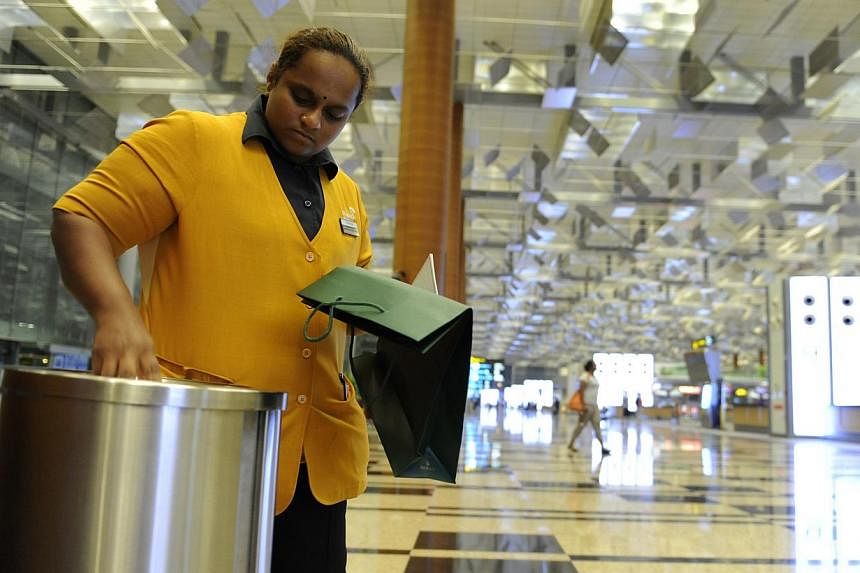When Malaysian cleaner Chandra Mogan Panjanathan, 34, was killed in a freak accident at Changi Airport two years ago, Singaporeans dug into their pockets to help his widow and children.
Madam Pusparani Mohan and her four children received close to $1 million in donations and insurance payouts. But the 34-year-old Malaysian quit her job as a cleaner, returned to Malaysia and lost all that money in just one year.
Madam Pusparani's story, reported in The Sunday Times last week, left many readers angry. But a lawyer told The Sunday Times that in her case, it was hard for donors to control how she spent the money.
If the donations were channelled to her without any written agreement to set out her boundaries and obligations, then donors had no say over how she spent the money, said lawyer Chia Boon Teck of Chia Wong LLP.
"Because the donations came from many sources, no one donor can take charge of the total donations," he said. If there had been just one donor, the person could have set up a trust fund to spell out how the beneficiary should spend the money, he added.
With many donors involved and no one party able to dictate terms, the donations were made on the assumption that the beneficiary would spend the sum responsibly, he said. Few would check how the money given was used.
"The feel-good factor about giving a donation lasts for a few minutes. Nobody wants to be saddled with the responsibility of having to monitor the usage of donations after that," he added.
Such a scenario was one of the factors that led to the setting up of the Ray of Hope Initiative in November 2012, one of its founders told The Sunday Times.
The non-profit organisation wants to be the middleman connecting those who are featured in the media after suffering a sudden crisis, with donors who want to help but do not know how to get the money to them.
Its manager Sharmin Foo, 34, who declined to comment on Madam Pusparani's case, said the organisation takes a structured approach.
She said it "works with the beneficiaries to estimate income and living expenses, how much their children's school fees are, debt and medical bills" before funds are raised.
Disbursements are then made in instalments, sometimes in the form of vouchers to ensure that the money is used appropriately. The group also keeps in touch with both donors and recipients.
But Mr Chia said it would still be a challenge for a group based here to make monthly disbursements to Madam Pusparani or monitor her expenditure, as she and her children live in Malaysia.
Separately, "another fairly common scenario" is when one parent dies, leaving the surviving spouse to administer the estate, he said.
Often the spouse uses the money as he or she wishes without regard for the children's entitlements and the children dare not question the parent. "Many of these cases do not see the light of day as most people do not wish to cause a family fallout over money," said Mr Chia.
In Madam Pusparani's case, unless there had been a proper trust deed, it would also be hard for her children to prove that their mother had not met her obligations to them when it came to the donations, he added.
Meanwhile, Mr Gregory Choy, head of wealth advisory at OCBC Bank, said Madam Pusparani's $1 million could have been invested in instruments such as equities, bonds, foreign currencies or endowment plans.
Even if one comes into a windfall, one "should continue to work and spend less than you earn, then save and invest the rest", he said.
"Thereafter, use the million dollars as an opportunity to grow your wealth and not blow it on luxury items and drastically change your lifestyle," he added.


